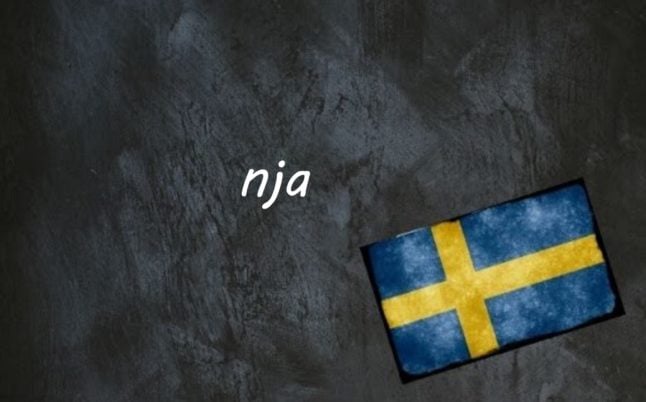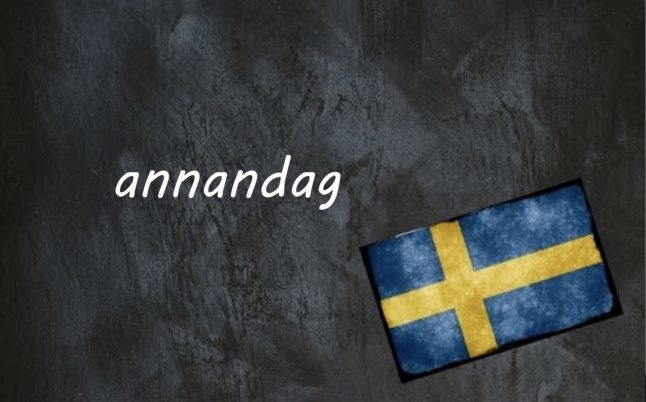Nja is a useful word to have in your arsenal.
It’s a jumble of the words nej (no) and ja (yes), which you can use when you don’t want to express an opinion on something outright. That might be because you don’t have the information to give a concrete answer yet, or because you just don’t want to pick a side. There’s a similar construction in German: jein, from ja (yes) and nein (no).
- Don’t miss any of our Swedish words and expressions of the day by downloading The Local’s new app (available on Apple and Android) and then selecting the Swedish Word of the Day in your Notification options via the User button
So it might express hesitation, doubt, or disagreement. Depending on the context, the English equivalent might be something like “We-ell…” or “yes and no…”. It’s a perfect word to pull out if you’re put on the spot in a debate and need to give a non-committal response.
Nja is often used like a counterpart of jo. Jo means “yes”, when answering a question posed in the negative, for example: Talar du inte svenska? Jo (Don’t you speak Swedish? Yes, I do). And nja can be used to respond negatively to questions, without giving an outright denial: Talar du svenska? Nja, men… (Do you speak Swedish? Well, sort of, but…)
If you’re trying to work out what Swedish-speaking friends really mean with their nja, be aware that it’s usually slightly closer to the “no” end of the “yes-no” spectrum.
To really emphasise the doubt or hesitation, you can draw out the word for longer: njaaaa…
Examples
Men ni är väl vänner? – Nja, inte vänner direkt.
But you’re friends, right? – Well, not really ‘friends’.
Alla tycker ju om kaffe – Nja, jag tycker bättre om te
Everyone likes coffee – Well, I like tea more.
Villa, Volvo, Vovve: The Local’s Word Guide to Swedish Life, written by The Local’s journalists, is available to order. Head to lysforlag.com/vvv to read more about it. It is also possible to buy your copy from Amazon US, Amazon UK, Bokus or Adlibris.



 Please whitelist us to continue reading.
Please whitelist us to continue reading.
Member comments